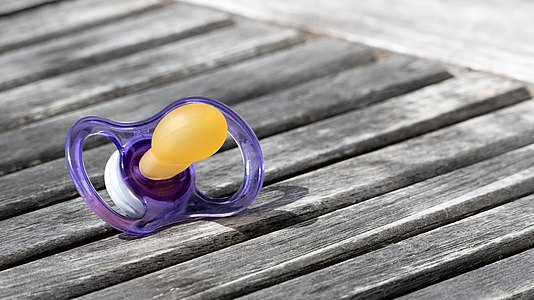A Geelong study linking sterilised pacifiers with an increased risk of food allergies in babies has gained international recognition.
The Barwon Infant Study compared dummy use and cleaning methods among six-month-old infants and those with a confirmed food allergy at one-year-old in more than 700 participants.
The study, published in the Journal of Allergy and Clinical Immunology, found infants whose dummies were sterilised with an antiseptic solution were more likely to have a diagnosed food allergy.
Centre of Food and Allergy Research investigator and Murdoch Children’s Research Institute PhD candidate Victoria Soriano said the findings warranted further investigation into how good bacteria in infants’ mouths and guts could help prevent food allergies.
“These findings support the growing recognition of the importance of good bacteria, known as microbiome, in our mouth and gut on healthy growth and development,” Ms Soriano said.
The research found no increase in risk of food allergy at one year of age among dummy users when the pacifier was washed in tap water, boiling water, put in the parent’s own mouth or not washed at all before being given to infants at six months of age.
“This research should not discourage the cleaning of dummies, as this is a vital step in keeping a child safe from the more immediate risk of infectious diseases,” Ms Soriano said.
“There is also no evidence from this study that cleaning dummies by other methods is harmful.”
With food allergies often causing life-threatening anaphylaxis and affecting up to 10 per cent of infants, more research is required to understand how to prevent allergies, according to Ms Soriano.
Pacifiers are a source of microbial exposure in early life, according to study’s authors.
A Swedish birth cohort found infants whose parents sucked their pacifier had reduced food sensitisation, asthma, and eczema at 18 months compared with infants whose parents used other cleaning methods.
The Geelong-based research’s authors also cited another study finding lower total immunoglobulin E (IgE) levels in children 10 to 18 months if mothers reported sucking the infants’ pacifier.
High IgE levels can be a sign that the body overreacts to allergens.









